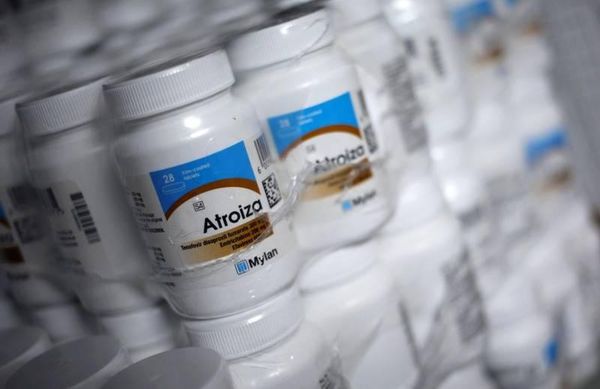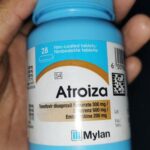Does Atroiza Cause Weight Gain?

Starting antiretroviral treatment leads to improved health, suppression of HIV and restoration of the immune system. Recently, studies have begun to report that people living with HIV gain weight after starting HIV treatment. Although, not everyone gains weight and the amount of weight gained varies.
When HIV-related illness was first recognized, one of the most common symptoms was severe weight loss. When people started highly effective antiretroviral treatment, they gained weight. This is called a ‘return to health’ effect of treatment and is still seen today in people with very advanced HIV who lost weight before starting treatment.
What is Atroiza?
Atroiza is a South African antiretroviral combination medication containing three drugs: tenofovir, emtricitabine and efavirenz. This medication is used to treat human immunodeficiency virus (HIV) infection in adults and children weighing more than 40 kg (88 lb). Efavirenz is in a class of medications called non-nucleoside reverse transcriptase inhibitors (NNRTIs). Emtricitabine and tenofovir are in a class of medications called nucleoside reverse transcriptase inhibitors (NRTIs).
Atroiza works by decreasing the amount of HIV in the body. Although efavirenz, emtricitabine, and tenofovir will not cure HIV, these medications may decrease your chance of developing acquired immunodeficiency syndrome (AIDS) and HIV-related illnesses such as serious infections or cancer. Taking these medications along with practicing safer sex and making other lifestyle changes may decrease the risk of getting or transmitting the HIV virus to other people.
Does Atroiza cause weight gain?
Weight gain is associated with specific anti-HIV medications, including integrase inhibitors and tenofovir alafenamide. The reasons for weight gain are unclear: several explanations have been proposed. Weight gain associated with HIV treatment may increase the risks of diabetes and cardiovascular disease.
One explanation is that weight gain is a result of immune recovery. Long-term viral infection depletes fat stores. When people recover from famine or severe infection, body fat stores are replenished. Weight gain may represent a restoration of weight to what it might have been, had the person not been living with HIV for a number of years (Kumar). However, weight gain may ‘overshoot’ in people more prone to obesity for dietary or genetic reasons. Studies show that people with more advanced HIV disease (low CD4 counts, high viral load) gain more weight, as do people who were underweight before starting treatment.
Another theory is that integrase inhibitors might cause weight gain through effects on the hormonal system which governs appetite regulation, leading to increased food intake (Domingo). But a laboratory study by one of the drug’s manufacturers found that the amount of any integrase inhibitor needed to interfere with the normal activity of this system would be far greater than the drug concentrations achieved from normal doses of integrase inhibitors (McMahon 2020).
Furthermore, one study found that people did not eat more after starting treatment nor did they experience a reduction in metabolic rate (Eckard). Another study found that substantial weight gain after four years of treatment was largely attributable to higher pre-treatment weight and lower physical activity, not increased food intake (Guaraldi).
Another variant on this theory is the possibility that integrase inhibitors cause changes to fat cells that lead to increased fat storage. But this research only looked at two integrase inhibitors and can’t explain why people taking TAF with an integrase inhibitor gain more weight than people who take an integrase inhibitor with the older formulation of tenofovir (tenofovir disoproxil fumarate, TDF) (Gorwood).
A third theory is that some of the drugs most often used in the past – efavirenz and TDF suppress weight gain after starting treatment. When these drugs are replaced in first-line treatment by drugs that do not suppress weight gain, the effect of immune recovery on weight after starting treatment might become more obvious. These effects may be more pronounced in black people, who are more likely to have a gene that results in higher levels of efavirenz, leading to greater suppression of weight gain (Griesel).





